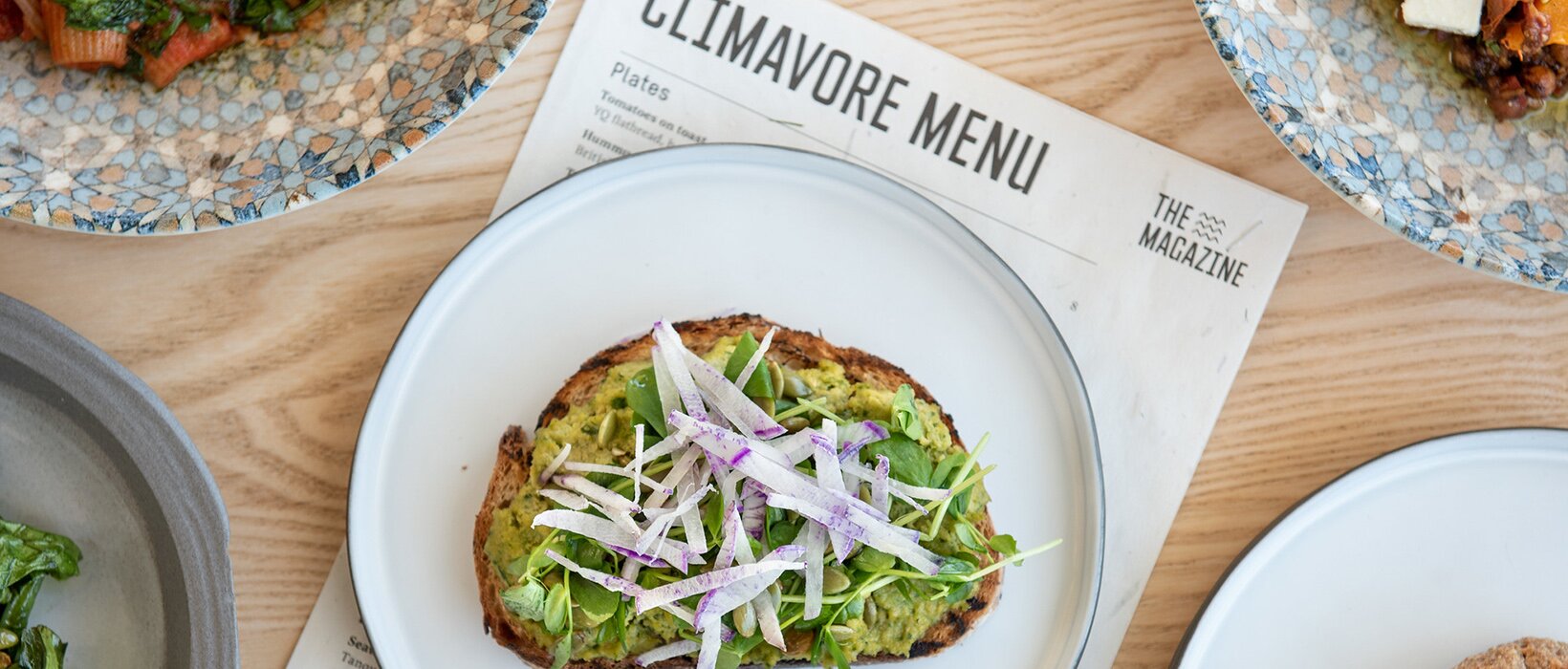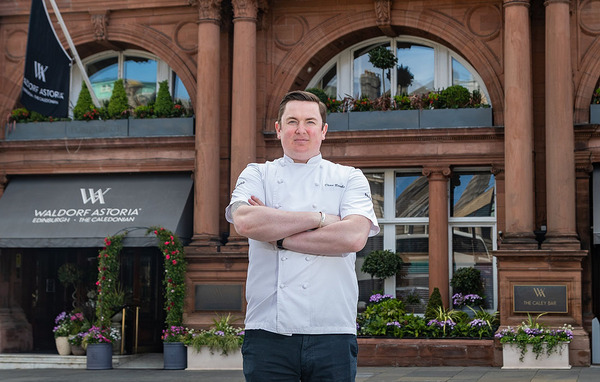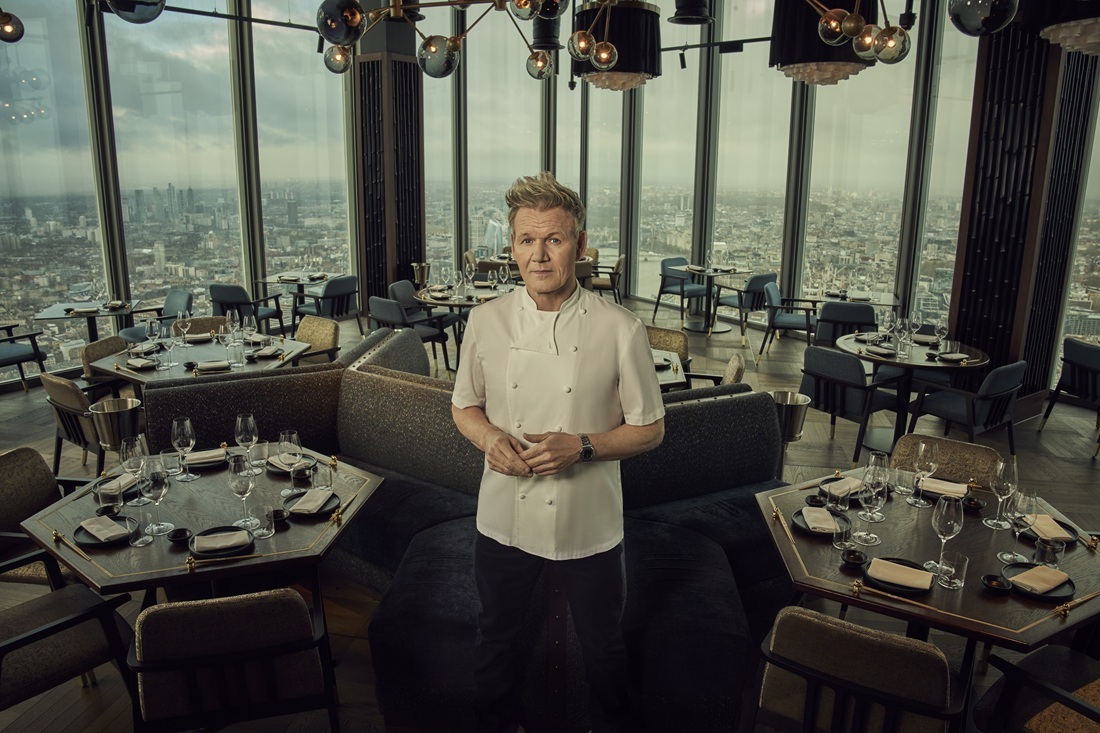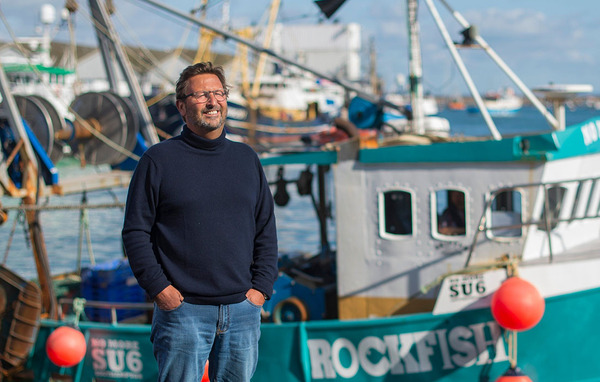Why chefs should take part in Regenuary
With some arguing that intensively-produced vegan ‘meat’ is as damaging to the environment as the real thing, chefs are being encouraged to adopt Regenuary, to ensure they minimise the impact of their cooking. Lottie Gross looks at what it means
Move over Veganuary, Regenuary is on-trend this January as chefs are being encouraged to change their cooking habits for the better.
While plant-based has long been touted as the more environmentally friendly diet, some restaurateurs and food producers argue that prioritising regenerative produce is the best way to eat sustainably, rather than cutting out meat and dairy entirely. Regenuary isn’t about replacing meat for a month, but rather about replacing foods that have a greater impact on the environment with those that give back to the environment instead.
The theory is, if the meat you serve comes from farms using regenerative practices, its environmental impact doesn’t need to be higher than a vegan or vegetarian dish. Especially if that vegan or vegetarian dish includes highly-processed produce, such as fake meat burgers or sausages.
The concept of Regenuary began with Glen Burrows, a former vegetarian who returned to an omnivore diet after 25 years and later co-founded the Ethical Butcher. He says it started as a slightly frustrated response to Veganuary, when he kept seeing posters for Veganuary, including one for a fast-food chain, which was advertising its vegan chicken burger.
“It made my blood boil to think that I, as an omnivore… how dare they replace chicken with some cheap processed rubbish, which vegans are happy to eat. What about the billion chickens that are killed every year? What about making their lives better instead of doing one token gesture?”
In his frustration he took to Instagram, and the movement – and debate that goes along with it – took off from there.
Flour power
Unfortunately, joining the regenerative bandwagon is not always as simple as switching suppliers, as Shane Kavanagh, commercial director at Benugo, knows well. The company has embraced regenerative produce over the last 12 months, but he says there are some unique challenges that come with the task.
“Our regenerative produce project began when we opened the Magazine at the Serpentine Gallery in June 2021 and began collaborating with art collective Cooking Sections,” he explains. “Initially our work with them focused on regenerative aquaculture, swapping out intensively farmed fish for ingredients which have a regenerative effect on ecology – examples include inter-tidal sea greens, such as seaweeds and samphires, and bivalves such as oysters or mussels, which have water cleaning properties, are easy to cultivate and don’t require any pesticides to produce.
“We have since expanded our work on regenerative produce to include regenerative agriculture. This has primarily been through experimenting with produce from Hodmedods, introducing ingredients it produces such as YQ flour [flour milled from the Yield and Quality wheat population] to replace ‘normal’ flour on the menus at Magazine.”
Benugo is now looking to expand these sourcing priorities across its more than 85 establishments, but access to ingredients is an issue. “The majority of producers and suppliers for regenerative produce are currently smaller scale, and we have been working to introduce some of this expertise into our supply chain. Benugo is a large national company, and despite a willingness and commitment to the project, it can be difficult to make regenerative ingredients available at scale. We are hopeful we can help improve this for the industry by forging these links with suppliers and producers now and figuring it out as we go along.”
Rural revolution
Small, local chains and independent restaurants will generally find incorporating regenerative produce into their menus much simpler – especially those out in the countryside or near countryside, where producers are easier to find and connect with. But the best way is to be led by the land entirely, says Imogen Davis, director at Native in London. She, and head chef Ivan Tisdall-Downes, let their menus follow the seasons and abundance of certain ingredients, and they seek out producers using what they call holistic methods.
“It’s about letting the land dictate,” says Davis. “It depends on what part of [the country] you grow in and seeing what works best in the land and the soil you’ve got. Working with the land is the best way to describe [regenerative] produce. And we don’t want to put that added strain on the food system that ordering 100 sirloin steaks would. Instead, we order in a whole deer and butcher it up.”
Lloyd Morse, head chef at the Palmerston in Edinburgh, loves the concept of Regenuary: “I think farming is really misunderstood. I think there’s this idea that all farming and all livestock rearing is bad for climate change, and I think Regenuary gives people the tiniest opportunity to understand why it’s not,” he says. But his favourite way to incorporate regenerative produce is by using game meat, such as venison. “There’s a huge population of deer in the UK, but because there are no natural predators any more, the idea of deer management has to be used,” he says. “We need to eat more deer because it’s wild and it’s out there in abundance. All it takes is one bullet to get a whole carcass. It’s natural, organic, and there’s so damn much of it. It’s the same with game birds like pheasants and partridge. We don’t eat enough of it.”
Small matters
Another way to embrace Regenuary could be through introducing regenerative practices within your restaurant operations and looking at your waste management systems. This is something the Pig hotel group does well in its kitchen gardens. “We have a special room at the back of our kitchens for veg prep, because once the veg enters the kitchens you can’t use it for compost,” explains James Golding, group chef director. “So we use the veg prep area, and then all of our vegetable waste can then be collected and put into composting bays. That then goes back into the garden to help grow our plants.”
Even if you’re not able to switch out the vast majority of your menu for regenerative foods, starting that conversation with producers and using Regenuary as a reason to explore alternative suppliers is a great start to embracing food that has a low impact and high return for the environment.
What is regenerative produce?
Unlike organic or Fairtrade, there is no certification method or official definition of regenerative produce, which means it can be tricky to understand what’s truly regenerative and what’s not, as “sustainable” doesn’t always mean a product or ingredient is regenerative.
“It’s about working with the land, rather than against it,” says Nicola Hordern, head chef at the Canteen in Southwold, Suffolk, a restaurant that takes local and regenerative produce seriously.
This could mean farming methods that help restore soil health or create better biodiversity, or techniques that reverse damage done to the environment through carbon emissions by increasing carbon sequestration. Some ingredients, such as seaweed and mussels, are naturally regenerative, too. Ultimately, produce is regenerative if it gives back to the earth as much as it takes out during the production process.
Tommy Banks on regenerative farming
“With the new year upon us, we tend to make resolutions focused on our consumption in one way or another. In recent years, it has become quite trendy to take part in Veganuary, and eating a different diet for a month might broaden our culinary horizons and help appreciate our understanding of others. Personally, am not certain it impacts the overall food picture and, if you are anything like me, resolutions are soon forgotten.
“So why not take a different approach this year and make a lifestyle choice to go in search of the whole foods that can really make a difference to your health and that of the planet? I am talking about Regenuary, the campaign that encourages people to consider the impact of everything they eat, regardless of diet, and try to source as much as possible from regenerative agriculture. I think this campaign can help us question our food choices for the better.
“Nowadays it is often said in the media that “a plant-based diet is better for the environment”. This narrative is well-funded by producers of plant-based foods, and although I find this a superficial phrase, it’s an easy one for people to accept, which is why I understand how it’s caught on. But I believe this year we shouldn’t be talking about animals versus plants, but how we can search for foods that promote biodiversity, soak up carbon and enrich our food culture. Rather than accepting the above sentence as fact, we must encourage people to explore the cost of all food production.
“Animals are not the problem, humans are. There is no ecosystem that can survive without animals. Nature has all the answers already. Grass is nature’s solar panel, absorbing sunlight and carbon. The animals that graze it then produce nutritious and delicious protein, without the use of fossil fuels, fertilisers and pesticides. To save the planet we should produce and eat more grass-fed animals. Where we are going wrong is encouraging unnatural food production. I believe regenerative farming is the solution to those problems commonly associated with unsustainable farming techniques – decline in productivity of the land, soil erosion and the creation or inability to capture carbon.
“A study by the Rodale Institute, which supports research into organic farming, said that a worldwide transition to regenerative agriculture can soak up more than 100% of the CO2 currently emitted by people. If half of that figure is correct, we’d be silly not to explore this! We need the farming of animals to replace chemical nutrients needed to effectively grow plant-based foods. Agriculture, as it always has been, needs to remain mixed and diverse. I believe processed meat alternatives promote a monoculture that will accelerate the declining fertility of our soil health and our own health.
“I appreciate I am just another person pushing an agenda, but this January, I’d like to encourage you to do some research on regenerative agriculture and question what the effect of the intensive arable farming needed to create these plant-based products has on the environment too. You can make your own mind up. I, though, will be enjoying some beautiful grass-fed beef and will be forever thankful to an animal that improves our ecosystem, stores carbon and converts the grass we cannot eat into delicious, healthy protein.”
Tommy Banks, chef-owner of the Black Swan and Roots, will launch a podcast about food and farming next month

















